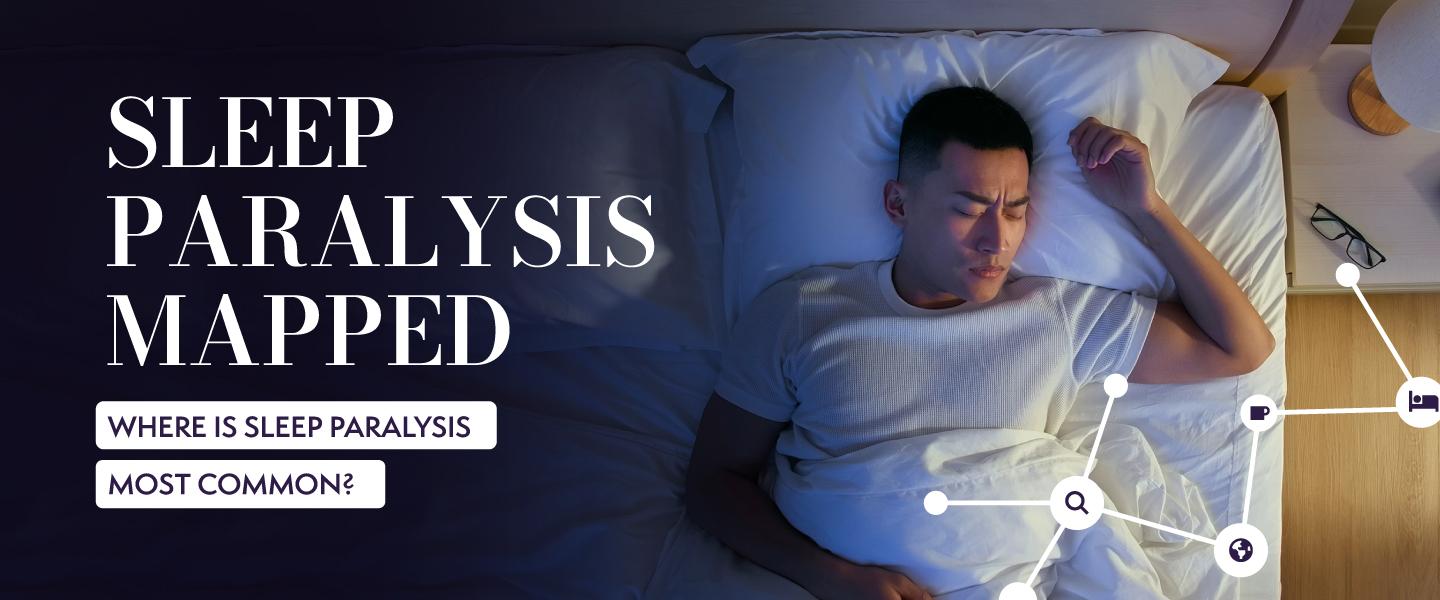Sleep Paralysis Mapped
Have you ever watched a horror film where scary demons invade a person's bedroom? Well, this phenomenon is all too real for some people, evident by a 900% increase in searches for ‘sleep paralysis demon’ over the past year.
Defined as the inability to move when conscious, sleep paralysis affects an estimated 8% of the world's population. Some sources have associated the cause of this condition with a lack of sleep - so reducing the effects of sleep paralysis could be as easy as supporting your neck and back with some new pillows! Having said this, for others, it is much more complex and can even require medication to manage.
A growing number of people are now sharing their experiences with sleep paralysis on the internet, including over 70 million Tik Tok videos! As a result of this surge in popularity, the team here at Sleepseeker wanted to find out who is being affected by sleep paralysis the most, and where the ‘demons’ are most common by delving into search data.
The UK towns/cities with the most sleep paralysis sufferers
We were eager to find out which areas of the UK have the highest number of sleep paralysis sufferers. We did this by gathering information on the number of combined Google searches for the terms ‘sleep paralysis’ and ‘sleep paralysis demon’ over the past year. Whilst we are aware that areas with high levels of sleep paralysis searches don't necessarily equate to more sufferers of the condition, there is a correlation between the two.
- Swansea - 1,799 searches per 100,000 residents
Taking the top spot as the city with the most sufferers of sleep paralysis is Swansea with a total of 1,799 Google searches per 100,000 residents. Located in the south of Wales, this city appears to be home to lots of people with the condition - so much so that Swansea University has invested in a special laboratory to learn more about the effects of sleep paralysis!
- Liverpool - 1,022 searches per 100,000 residents
Next up in this list is the English city of Liverpool. Despite having the most annual searches in the top three, this city just comes up short against Swansea when populations are taken into account. However, with 1,022 searches per 100,000 residents, it indicates that there are many sufferers of sleep paralysis in this city.
- Milton Keynes - 992 searches per 100,000 residents
Sleep paralysis also appears to be common among the residents of Milton Keynes who complete this top three list of the UK cities with the most sufferers of sleep paralysis.
The UK towns/cities with the least sleep paralysis sufferers
As we have looked at the cities with the most sufferers of sleep paralysis, it only seems fair to rank the areas on the other end of the spectrum too!
- Slough - 56 searches per 100,000 residents
The town of Slough reigns victorious as the UK area with the lowest number of sleep paralysis sufferers. The residents here are known for their strong sense of community, and this may help them to fight off the sleep paralysis demons!
- Edinburgh - 155 searches per 100,000 residents
As one of the most populated cities in Scotland, it may come as a surprise to see Edinburgh featured in this list. When taking the population of this city into account, there are only 155 searches per 100,000 residents which ranks Edinburgh as the UK city with the second lowest number of sleep paralysis sufferers!
- Poole - 217 searches per 100,000 residents
Poole has been praised by many for its above-average health support and the family-friendly environment - but the positives don’t stop there! Whether the residents here are good at taking steps to prevent sleep paralysis, or just receive good treatment for the condition, they have a low number of sufferers and therefore complete this top three list.
Sleep paralysis capitals from across the globe
Due to the global interest in this condition, we wanted to expand our horizons by exploring which countries are currently searching the most about sleep paralysis. The 66 most developed countries were initially included in this data, but those with less than a million residents were removed.
- Australia, Oceania - 1,350 searches per 100,000 residents
Taking the crown as the country with the most sleep paralysis sufferers is Australia, with a total of 1,350 Google searches per 100,000 residents. A large percentage of the Australian population struggle with sleep in one way or another. In addition to this, some well-known Australians have recently spoken out about their troubles with sleep paralysis which suggests that the condition is common in this area.
- United States, Americas - 1,203 searches per 100,000 residents
Experts have revealed that COVID could be partially responsible for a surge in sleep paralysis occurrences over recent years. As the country with the most positive COVID cases to date, this could explain why the US have the second-highest number of sleep paralysis sufferers.
- New Zealand, Oceania - 1,185 searches per 100,000 residents
As the second Oceanic country in this top three, it seems that the residents of this continent have been kept wide awake as a result of sleep paralysis! New Zealand completes this top three list with 1,185 sleep paralysis searches per 100,000 residents.
Sleep paralysis search increases in the UK
We analysed search data over the past two years to gain a better understanding of where sleep paralysis is currently the most common. Using this information, we were able to determine which areas of the UK have had the biggest increase in sleep paralysis-related searches - here's what we found:
- Cardiff - 175.0% search increase over the past two years
In a similar fashion to the previous UK list, it is a Welsh city that takes the top spot but this time it is Cardiff who has the crown with a 175% increase in Google searches. With many famous ghost stories about this city, it appears to have had an impact on the residents here by increasing their interest in sleep paralysis demons.
- Edinburgh - 62.2% search increase over the past two years
Having a search increase of 62.2% means that Edinburgh is ranked as the second most curious area in the UK regarding the topic of sleep paralysis. Edinburgh is home to a support group dedicated to those suffering from sleep paralysis which indicates that this condition is somewhat of a commonality among the residents here.
- Leeds - 44.8% search increase over the past two years
Out of this entire top three, it is the English city of Leeds that has the largest number of combined total searches for ‘sleep paralysis’ and ‘sleep paralysis demon’ over the last year. However, it appears that the residents here have been interested in this topic for a while as their total search increase in Google searches is 44.8% - bringing them down to third place in this list.
Global sleep paralysis search increases
Sleep paralysis is a condition that has piqued the interest of those all over the world, but which countries are keen to learn more about it?
- Kazakhstan, Asia - 50.9% increase in Google searches
With an annual search total of 1,630 over the past year for sleep paralysis and an overall search increase of 50.9%, Kazakhstan takes this top spot as the country most curious about this condition.
- Georgia, Europe - 27.7% increase in Google searches
Georgia is a country saturated with spirit-based mythology and folklore tales that have been passed down through generations. This, paired with the sleep paralysis demons that people have claimed to have hallucinations about seems to have sparked the interest of many residents here - evidenced by a 27.7% increase in Google searches for sleep paralysis.
- Thailand, Asia - 25.7% increase in Google searches
Completing this top three is Thailand which has seen an increase of 25.7% for ‘sleep paralysis’ and ‘sleep paralysis demon’ Google searches. Commonly depicted in Thai comics, a spirit named Phi Am is said to be the cause of sleep paralysis here, with some claiming that this ghost can even cause bruises!
Most common sleep paralysis questions
Aside from the general searches for ‘sleep paralysis’ and ‘sleep paralysis demon’, we wanted to delve deeper and explore the exact questions that everyone is losing sleep over regarding this topic. Below is a list of the ten most searched-for questions relating to this condition which are ranked based on the total number of global searches for each term over the past year.
- What causes sleep paralysis? - 937,500 annual searches
Although it is hard to determine exactly what causes sleep paralysis, the condition has been linked to a range of factors including a disrupted sleep pattern, panic disorders and even a family history. With so many contributing factors, it's no surprise that the question of ‘what causes sleep paralysis’ has garnered 937,500 annual Google searches.
- What is sleep paralysis? - 616,000 annual searches
The second most frequently asked question on this topic is simply ‘what is sleep paralysis?’. It may be surprising that this question isn’t in the top spot, but a lot of people who are searching about sleep paralysis have likely seen an article or a TikTok video about it, meaning that they are already familiar with the condition.
However, if you are not one of the 616,000 who has Googled this question, or if you are still unsure about what sleep paralysis is, then look no further! This condition is generally defined as an inability to move or speak when falling asleep/ waking up and it can result in hallucinations which can take the form of ‘demons’ in your room.
- Why does sleep paralysis happen? - 94,500 annual searches
With 94,500 annual searches, the third most common question on this topic is ‘why does sleep paralysis happen?’. Scientifically speaking, sleep paralysis happens because your brain is trying to protect you from acting out your dreams - which it does by preventing your limbs from moving. When a person becomes conscious during this stage of sleep, the muscles stay asleep but the brain is awake and this results in sleep paralysis.
Most popular ‘sleep paralysis’ TikTok hashtags
One contributing factor to the surging interest in sleep paralysis is the online video-sharing platform, TikTok (which has seen over 75 million tags on the topic!). From informative videos on the dangers of sleep paralysis to comedy-based videos on the subject, it seems that the users of this app are obsessed with all of the spooky occurrences and funny stories that people have to share.
Ranked below is a list of the most popular sleep paralysis TikTok hashtags. We looked at which hashtags currently have the most traction in terms of the total number of views.
- #sleepparalysisdemon - 177,800,000 TikTok views
Towering above every other hashtag is #sleepparalysisdemon with a total of 177,800,000 TikTok views. It seems that the users of this app are most interested in the hallucinations and scary stories associated with this condition - and some of the stories are crazy! The app has a large selection of filters that can be used to add an extra layer to a video, and lots of users have used this to elevate their sleep paralysis stories.
- #sleepingparalysis - 12,000,000 TikTok views
The #sleepingparalysis tag on TikTok encompasses the whole condition which is likely why it has had 12,000,000 views. The videos that use this hashtag are generally entertainment-based or informative, but they all seem to be popular!
- #sleepparalysis - 3,400,000 TikTok views
Very similar to the hashtag in second place, #sleepparalysis also appears to be popular as the number of views for this hashtag is currently at 3,400,000. This, alongside the views from the rest of these top three, shows that the awareness of sleep paralysis is at an all-time high.
Five tips to help prevent sleep paralysis
From what we have revealed so far it is clear that sleep paralysis is a widespread topic of interest. Whether you suffer from the condition (or just want to know how to avoid it), we have got some tips that could help you out!
- Eliminate Distractions
As technology continues to take over more and more aspects of our lives, we are encouraged to put down the screens before bed- and this is equally as important when it comes to sleep paralysis! By eliminating any loud noises and harsh lighting, you can keep those demons at bay.
- 6-8 Hours Of Sleep
It goes without saying, but having a regular sleep schedule is beneficial for so many reasons. Having said that, it is particularly important to get 6-8 hours of beauty sleep if you are looking to prevent sleep paralysis. Some of the most popular ways to help people wind down include muscle relaxation and meditation which you can find many online tutorials for.
- No food, alcohol or caffeine before bed
Although alcohol can make people more sluggish and less alert, this doesn't mean that it is a good thing to do before bed. Studies have shown that drinking alcohol just before bed can result in fragmented sleeping and this is likely to increase your chances of having an episode of sleep paralysis. Similarly, food and caffeine are associated with providing energy so it's no surprise that these should be avoided if you want to get a good night's sleep!
- Avoid Napping
It's all too tempting to have an afternoon nap when you are feeling a bit tired during the day, but if you are experiencing sleep paralysis then this could be the reason why. Napping can disrupt your sleep pattern which can cause you to wake up during the night. If you are wanting to prevent sleep paralysis then it is recommended that you find other ways to fight off the midday tiredness such as a healthy snack or a short walk.
- Don’t sleep on your back
Sleeping on your back is the second most common position, but this can be detrimental to your shut-eye as it makes you more likely to wake up from snoring. As mentioned before, a disrupted sleep schedule has been linked to sleep paralysis so if you are looking to prevent this condition then it could be as easy as turning onto your side.
First-hand experiences of sleep paralysis sufferers
From all the data we have looked at, there is no doubt that sleep paralysis is affecting residents all across the UK. Because of this, we wanted to try and understand more about people’s individual experiences with the condition.
Katie
Katie, from Lancashire, has been suffering from sleep paralysis for over 20 years. When asked about her experience with the condition she recalled:
“The first time I remember having sleep paralysis was probably around the age of 8 or 9. This probably coincided with the rough timeframe of when I started to have trouble with school. I remember my first experience very vividly where I thought I was awake in my bed with a terrifying looking clown standing over my bed just staring at me with this sinister smile on his face. I was trying to move or call out for my parents but I couldn’t get a sound out.’
“I used to experience it once every couple of months… but these days it happens probably only once or twice a year”
“Alcohol is a big trigger for my sleep paralysis, particularly if I’ve drank a lot… stress can also trigger it, so these days, getting sleep paralysis is usually a warning sign for me that I need to make some changes”
“When it happens now I’m able to recognise that it’s sleep paralysis. I don’t see anything scary but I just feel that something is wrong in the room”
“My husband knows about my sleep paralysis and he has had to help me wake up on a few occasions when he can hear me making noises in my sleep that sound distressed”
Lilly
Residing in Edinburgh, Lilly was kind enough to share her experience with sleep paralysis with us. Whilst she hasn’t had a single episode of it for a couple of years, the condition has been impacting her life for around 15 years.
“I started having it when I was in high school. I’d take naps when my parents were at work and I was supposed to be doing my homework. I eventually started having these dreams where I was supposed to be doing really important things and that I wasn't meeting others' expectations of me. Then the sleep paralysis began”
“It feels like I’m weak and invisible to those who love and care for me like all my strength equals nothing while I need to defend myself from this evil presence I stand no chance against. For as long as you fight it, you’ll feel more and more defenceless and scared”
“It feels as if the room is filled to the brim with evil goo or toxic air”
“Meditation and therapy help… When I start panicking, I repeat in my head ‘you’re just sleeping, everything’s ok, you’re just sleeping, everything’s ok’ ”
Methodology
We gathered a list of the top 50 UK cities/ towns based on population using data from City Population. We used Wikipedia to find a list of the 66 most developed countries in the world. Any of the 66 countries that had a population of less than a million and/or that we could not find search data for were removed leaving us with a total of 57 countries.
We used Google Keyword Planner to add up the total number of searches for the terms ‘sleep paralysis’ and ‘sleep paralysis demon’ between Nov 2020-Oct 2021 and a separate total for Nov 2021-Oct 2022.
To calculate the total number of searches per 100,000 residents over last year, we divided the Nov 2021-Oct 2022 total by each location’s population reach on Google Keyword Planner before multiplying this number by 100,000.
We subtracted the Nov 2021-Oct 2022 search data total from the Nov 2020-Oct 2021 total and divided this by the Nov 2020-Oct 2021 figure before multiplying by 100 to give us a percentage of how much each location had increased/ decreased in searches over the last two years.
We used the Keywords Explorer feature on Ahrefs to collect a range of sleep paralysis-related questions. We then used Google Ads Keyword Planner to add up the total number of searches as well as the average monthly searches for each of the selected questions over the last year.
Finally, we used TikTok to collate a list of the most popular sleep paralysis hashtags as of November 2022 and the number of views for each hashtag.
What's trending now...
-

Slumberdown Super Support Firm Support Side Sleeper Pillow, 2 Pack
£17.00
Shop Now -

Slumberdown All Seasons Combi 15 Tog (10.5 + 4.5 Tog) Double Duvet
£30.50
Shop Now -
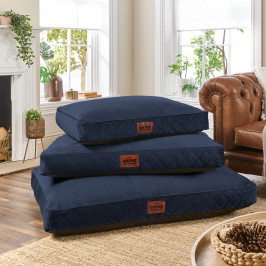
Slumberdown Paws for Slumber Navy Pet Bed, Large
£49.00
Shop Now -

Slumberdown Wonderful Wool Mattress Topper, King
£60.00
Shop Now -

Slumberdown Paws for Slumber Extra Large Pet Bed Spare Cover, Grey
£20.00
Shop Now -

Slumberdown Anti Allergy Mattress Protector - Double
£20.50
Shop Now -
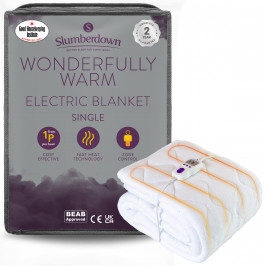
Slumberdown Wonderfully Warm Electric Blanket - Single
£60.00
Shop Now -

Slumberdown Anti Allergy Pillow Protector - Pack of 2
£15.50
Shop Now -

Slumberdown Paws For Slumber Sherpa Pet Bed, Medium
From: £25.00
Shop Now -

Slumberdown Super Support Firm Support Side Sleeper Pillow
From: £17.00
Shop Now -

Slumberdown All Seasons Combi Duvet
From: £25.50
Shop Now -

Slumberdown Paws for Slumber Large Pet Bed
From: £49.00
Shop Now -

Slumberdown Wonderful Wool Mattress Topper
From: £54.50
Shop Now -

Slumberdown Paws for Slumber Extra Large Pet Bed Spare Cover
From: £20.00
Shop Now -

Snuggledown Scandinavian Hollowfibre Mattress Protector - Single
£14.00
Shop Now -
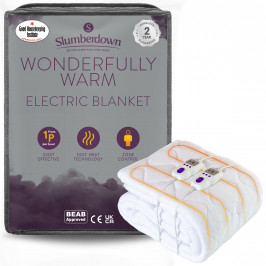
Slumberdown Wonderfully Warm Electric Blanket
From: £60.00
Shop Now -

Slumberdown Anti Allergy Pillow Protector
From: £15.50
Shop Now -
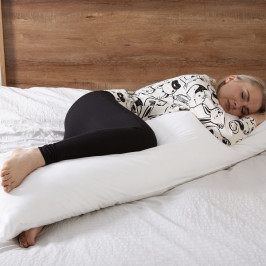
Slumberdown Body Support Pillow, 1 Pack, Includes 100% Cotton Pillow Case
£20.00
Shop Now -

Slumberdown All Seasons Combi 15 Tog (10.5 + 4.5 Tog) King Size Duvet
£34.00
Shop Now -
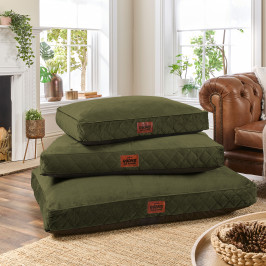
Slumberdown Paws for Slumber Olive Green Pet bed, Medium
£39.00
Shop Now -

Snuggledown Scandinavian Hollowfibre Mattress Topper - Super King
£35.50
Shop Now


